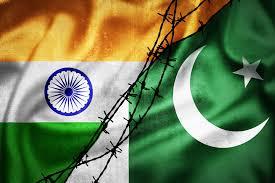
Introduction
Mental health is often ignored in Pakistan. While physical illnesses like fever or diabetes get attention, mental health issues are often hidden, denied, or misunderstood. But mental health is just as important as physical health. Depression, anxiety, and stress affect millions of people, including children, students, housewives, and working professionals. It’s time to break the silence and talk openly about mental health in Pakistan.
What Is Mental Health?
Mental health refers to your:
- Emotional well-being
- Ability to handle stress
- Ability to think clearly and make decisions
- Relationships with others
- Overall mood and sense of peace
Good mental health means you can manage life’s challenges, build healthy relationships, and stay positive. Poor mental health can lead to emotional pain and even physical illness.
Common Mental Health Issues in Pakistan
- Depression
- Feeling sad, hopeless, or empty for weeks or months
- Loss of interest in daily life
- Trouble sleeping or eating
- Feeling worthless or having suicidal thoughts
- Anxiety
- Constant worry or fear
- Fast heartbeat, sweating, restlessness
- Trouble focusing
- Panic attacks
- Stress
- Often caused by family pressure, job problems, exams, or financial issues
- Can affect sleep, appetite, and energy levels
- Post-Traumatic Stress Disorder (PTSD)
- Often affects those exposed to violence, accidents, or disasters
- Includes flashbacks, nightmares, and emotional numbness
- Bipolar Disorder and Schizophrenia
- More severe but less common
- Can include mood swings, hallucinations, and difficulty thinking clearly
Why Mental Health Is Ignored in Pakistan
- Lack of awareness – People think “it’s just stress” or “just a phase”
- Cultural stigma – Mental illness is often seen as a weakness or a shame
- Religious misunderstanding – Some think mental illness is due to weak faith or spiritual punishment
- Lack of professionals – Very few trained psychologists or psychiatrists, especially in rural areas
- Expensive private treatment – Mental health care is not affordable for many
Warning Signs That Someone May Be Struggling
- Constant sadness or crying
- Withdrawing from family and friends
- Changes in eating or sleeping habits
- Anger or irritability
- Talking about feeling hopeless or ending life
- Substance abuse (drugs, alcohol, smoking)
What You Can Do to Improve Your Mental Health
✅ Talk to Someone You Trust
Don’t keep everything inside. Talking to a friend, parent, or counselor can bring relief.
✅ Take Care of Your Body
Eat healthy, sleep well, and exercise. These affect your mood more than you think.
✅ Practice Gratitude and Positivity
Keep a journal or make time every day to think of things you are thankful for.
✅ Limit Social Media
Too much screen time can increase feelings of anxiety and comparison.
✅ Learn to Say “No”
Avoid unnecessary stress by setting boundaries in your personal and work life.
✅ Seek Professional Help
There is no shame in getting help. Therapy, counseling, or medication (if needed) can change lives.
Free Mental Health Resources in Pakistan
- Rozan – Counseling and mental health support
- Umang Pakistan – Mental health awareness platform
- Taskeen – Offers mental wellness information in Urdu
- Befrienders Pakistan – Suicide prevention helpline
How You Can Help Others
- Listen without judgment
- Don’t say “Just be strong” or “Pray more” — offer empathy, not advice
- Encourage others to seek professional help
- Spread awareness in schools, workplaces, and homes
Final Thoughts
Mental health is not a luxury or weakness—it’s a basic part of overall health. In Pakistan, we must break the silence, remove the shame, and make space for emotional healing. If you or someone you know is struggling, remember: you are not alone, and help is available.